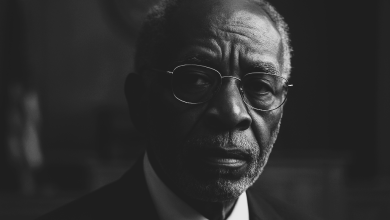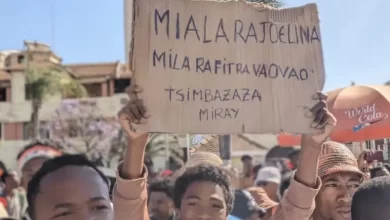State-Sponsored Injustice Against Murder Suspects in Ghana: A Legal Irony Rooted in Systemic Delay and Statutory Inflexibility
BY VICTOR KUSI, ESQ. - DISTRICT MAGISTRATE | LEGAL SCHOLAR

Despite Ghana’s proud democratic credentials and constitutional commitment to justice and
liberty, suspects accused of murder routinely suffer prolonged detention without trial due to
systemic delays and procedural rigidity. This practice is in stark contradiction to Article 14(1) of
the 1992 Constitution, which guarantees that “every person shall be entitled to his personal
liberty,” and Article 14(3)(a), which mandates that a person arrested for an offence be brought
before a court within 48 hours. These safeguards, intended to prevent arbitrary detention, are
routinely undermined when suspects charged with murder are kept in pre-trial custody for months
or even years.
Under Ghanaian criminal procedure, murder, defined under section 46 of the Criminal and Other
Offences Act, 1960 (Act 29), is an indictable offence triable only at the High Court. Before such
trials can commence, the Attorney-General’s Department must issue a bill of indictment and a
summary of evidence. This pre-committal step is often subject to delays. Unfortunately, many
suspects remain incarcerated for prolonged periods while awaiting this advice, without any
meaningful legal recourse.
The situation is aggravated by section 96(7) of the Criminal and Other Offences (Procedure) Act,
1960 (Act 30), as amended, which prohibits District Magistrates from granting bail in offences
punishable by death or life imprisonment, including murder. The provision states, “A Court shall
refuse to grant bail… where a person is charged with an offence punishable by death or
imprisonment for life.” Thus, even where a District Magistrate is convinced that the continued
detention of a suspect is unjustified, there is no discretion to grant bail.
This rigid statutory scheme contradicts Article 19(2) (c) of the Constitution, which provides that
an accused person shall be presumed innocent until proven guilty. The presumption of innocence
is rendered meaningless when suspects remain incarcerated indefinitely without trial or access to
bail. In effect, the justice system imposes punishment before guilt is established.
Several cases across Ghana illustrate the human cost of these systemic failures. In Republic v.
Isaac Quansah, a case before the Agona Swedru District Court, the accused was arrested in March
2023 on a charge of murder. As of April 2025, the Attorney-General’s advice was still pending.
The suspect had made over fifteen appearances before the court, yet no committal had been
conducted, and bail was unattainable at the District level. A separate application to the High Court
in Winneba for bail took more than six months to be listed. In another matter, Republic v. Adwoa
Nkrumah, a 67-year-old woman charged with conspiracy to commit murder spent over thirteen
months in custody before the Attorney-General issued an advice indicating that there was
insufficient evidence to prosecute. By the time she was discharged, she had developed serious
health complications due to poor conditions in detention.
These are not isolated instances. Across the country, suspects remain incarcerated not because they
have been tried and convicted, but because the procedural architecture of the justice system—
marked by prosecutorial delay and judicial restraint—offers them no timely path to liberty.
This practice raises serious constitutional questions. The prolonged detention of suspects without
trial may amount to a breach of Article 19(1), which entitles every person to a fair hearing within
a reasonable time. Furthermore, it offends Article 33(5) of the Constitution, which allows for the
enforcement of rights not expressly mentioned in the Constitution but which are considered
inherent in a democratic state. The courts have not squarely confronted this tension, although in
Martin Kpebu v. Attorney-General [2016] DLSC, the Supreme Court affirmed that bail
decisions must be based on the individual circumstances of each case and that blanket denials
offend constitutional standards.
Ghana also has obligations under international law. Article 9(3) of the International Covenant on
Civil and Political Rights (ICCPR) stipulates that pre-trial detention shall not be the general rule
and that release pending trial should be considered. Similarly, Article 7(1) (d) of the African
Charter on Human and Peoples’ Rights guarantees the right to be tried within a reasonable time or
to be released pending trial. Ghana’s continued failure to ensure the timely processing of indictable
cases and the inflexible prohibition on bail for murder suspects places it in breach of these
obligations.
A credible and humane justice system cannot ignore the cost of such procedural rigidity. Prolonged
detention without trial not only imposes an emotional and physical toll on the accused but also
undermines public trust in the judiciary. It delays closure for victims’ families and burdens the
state with the cost of detaining untried individuals.
Reform is both urgent and necessary. The Ministry of Justice should implement internal timelines,
such as a 90-day maximum window for the issuance of Attorney-General’s advice in capital cases.
Parliament must amend section 96(7) to return some limited discretion to Magistrates to grant bail
in cases where there is undue delay, or where the suspect is infirm, elderly, or demonstrably not a
flight risk. In addition, the judiciary should establish pre-trial review courts at the Circuit or High
Court level to periodically assess the detention status of remand prisoners in capital cases.
Moreover, Parliament must operationalize Article 14(5) of the Constitution, which entitles
unlawfully detained persons to compensation. This will not only deter arbitrary incarceration but
will also incentivize prosecutorial diligence.
The presumption of innocence must not be treated as a theoretical ideal but as a practical shield.
A justice system that allows individuals to be imprisoned for years without trial ceases to protect
liberty and instead becomes complicit in its erosion. Ghana must rise above the inertia of legal
formalism and confront the lived realities of pre-trial detainees. Justice must be timely. Justice
must be fair. Justice must be real.
Link To Paper: STATE-SPONSORED INJUSTICE AGAINST MURDER SUSPECTS IN GHANA




